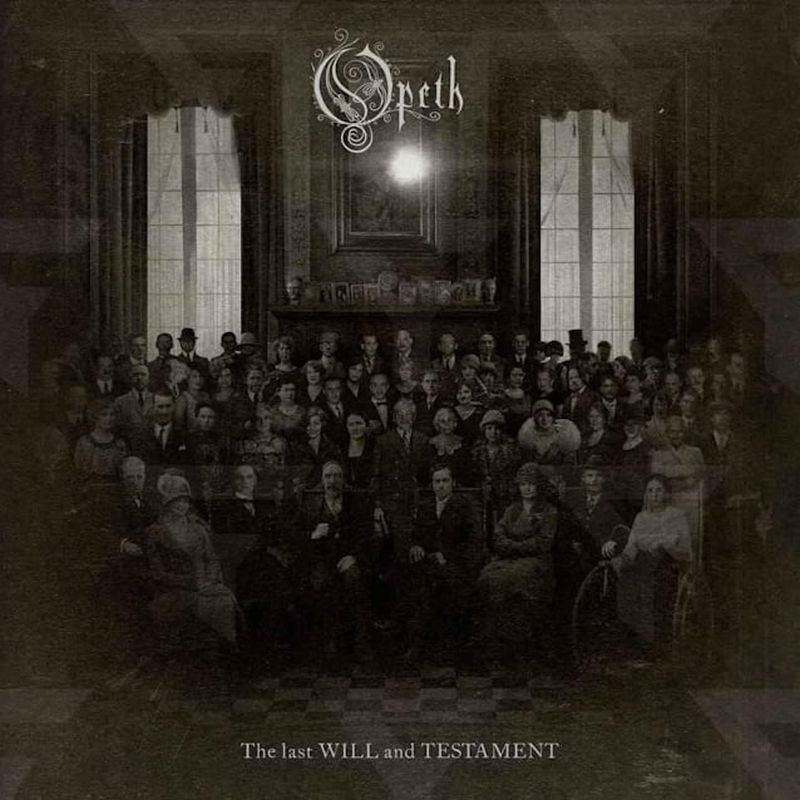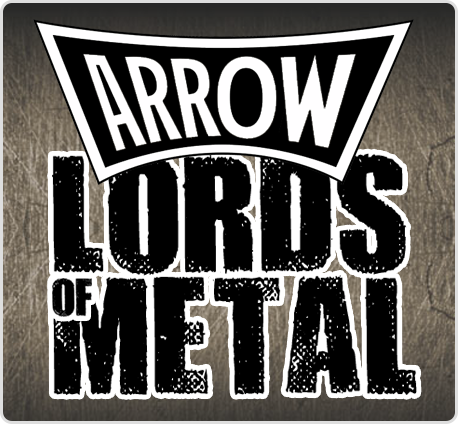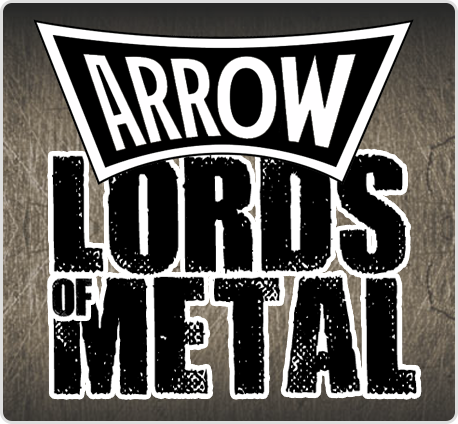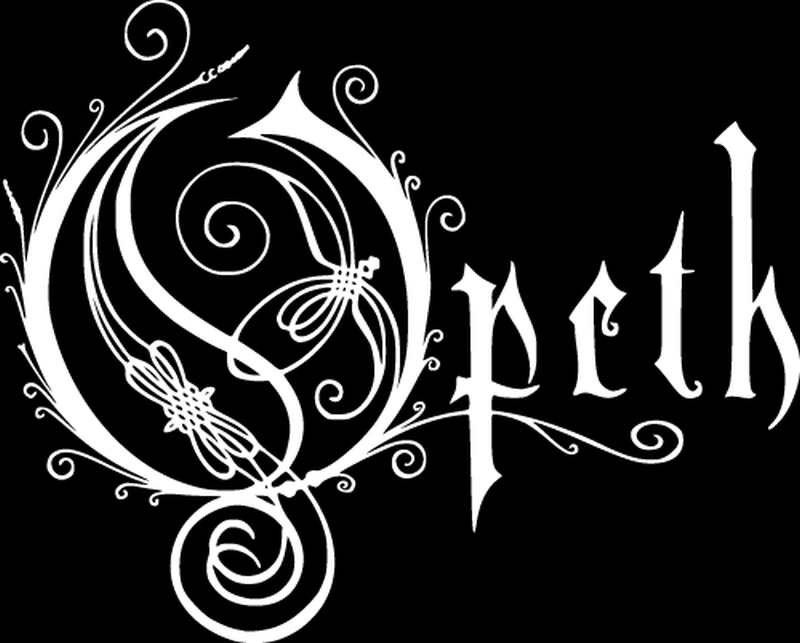
Opeth – interview met Fredrik Åkesson
Fredrik Åkesson: “Queen did their classic album with ‘Killer Queen’ in that studio and ‘Bohemian Rhapsody’ was composed and recorded over there. Rush was once there. Ronnie James Dio and Heaven & Hell albums were done there. So it has a lot of history. I got to stay in the same room as Ronnie James Dio did and Mikael was staying in the one that Toni Iommi and Freddy Mercury used to stay in. Spooky nights in a nice way (chuckles). It is still the same family exploring it. It is a little bit our second home now. We feel relax there and it is good for bonding as a band as well.”
De opvolger van ‘In Cauda Venenum’ (2019) van de suprème progressieve death metal act Opeth, genaamd ‘The Last Will And Testament’, komt eerstdaags uit, maar lang voor het zover was hadden we reeds een heel interessant gesprek met gitarist Fredrik Åkesson. Deze inwijding in de materie hebben we verwerkt in ons volgende interview voor de Zweden, zodat er ook voor onze lezers heel wat details te ontdekken vallen.
Vera Matthijssens Ι 25 november 2024
How did Mike and the band come up with such an exceptional story this time?
On the previous album, ‘Cauda Venenum’, there was one track that involved family arguments regarding splitting up the testament and will. Maybe the seed was kind of planted there. This eventually resulted into a concept album. It is a story from the 1920’s. In this case his children got ready mad at him after they read his testament and will. There are also many different signals and they experience different stories that they are not aware of, relieving certain things. People who are interested in this, can dig deeper into this. You will be able to discover a lot as soon as you get the album and the lyrics sheet. Mike also mentioned that he was influenced by the TV series ‘Sucession’ as well, which deals with the consequences of the will of dad. That gave him inspiration for the concept.
Did the idea and lyrics for that concept come before you had written any new music or after that?
It developed during the writing process of the music. The basic idea was there, but the music was completed before the actual story was 100% crystallized, because we had working lyrics for the songs that Mikael recorded. The general concept was there, but it was more a morphing along the writing process of the music as well. Maybe just a week before we went to the Rockfield studio, It was in February this year. Then everything was really done.
In Rockfield Studios it seems that you have a nice time, because it was far away from everything…
Yes, it is a residential studio, so you can have the option to work long hours there. We saved a lot of time, because they served breakfast as well (chuckles). It is a beautiful place, basically you are living on a farm in the countryside. In the morning when I opened my curtains, sometimes there was a horse before the window or a flock of sheep. It is a really beautiful countryside adventure. There was a village in the neighbourhood. Sometimes we walked to the village, there were a few inns and stores, but they are old school, as in every smaller town. It was our third time there, but it was different this time. There are two studios and this time around we went to the Quadron studio which is a bigger one where Queen did their classic album with ‘Killer Queen’ and ‘Bohemian Rhapsody’ was composed and recorded over there. Rush was once there. Ronnie James Dio and Heaven & Hell albums were done there. So it has a lot of history. I got to stay in the same room as Ronnie James Dio did and Mikael was staying in the one that Toni Iommi and Freddy Mercury used to stay in. Spooky nights in a nice way (chuckles). It is still the same family exploring it. It is a little bit our second home now. We feel relax there and it is good for bonding as a band as well.
Oh yeah there are times that you won’t see each other for a long time… or do you still make casual appointments to have a beer or so?
Yeah yeah that still happens. Absolutely. I mean, Martin Mendez, our bass player, he lives in Barcelona. That means he comes here for rehearsing and work on stuff, but the rest of us we tempt to meet up for a beer and now and then we go to a show. Stuff like that.
The lyrics for the album were written with a little bit of help by Klara Rönnqvist Fors. Who is that?
As far as I know she was involved in the twist at the end, in the last song ‘A Story Never Told’. There is an interesting twist that you can dig deeper into when you put your teeth into the album. Klara was behind that and it is very cool turn in the story.
How do you see this when Opeth is going to play live? Are you going to play excerpts now and then or are you going to take a part as a whole?
So far we have rehearsed five tracks. Some of them are a little bit depending on all these string arrangements. So that will require a string ensemble. If we would play the entire album at some point, it definitely has to be a special event, because it demands doing it in its full glory, because we don’t use tapes. We are old school, we have to play everything. You have to take some stuff out anyways when you play live. I cannot play rhythm guitar and melodies at the same time. So the keyboards has to replace it. You have to rearrange the songs a little bit, because there are so many layers in the album and we only have two arms and two legs each. Maybe in the future we will play it in its entirely, but not now. We will play at least three or four songs on the upcoming European tour.
That makes sense, because it is a layered album with different approach…
Live we are still entertainers, people want to hear some old stuff and some new stuff of course and we have to find a good balance between those two.
Opeth has been with Nuclear Blast for a long time. I know that RPM is a kind of sequel from the earlier NB initiator Markus Staiger, but what are the reasons for switching to RPM?
To make a long story short, there was Nuclear Blast and then the owner Markus Staiger sold it and started a new label called Atomic Fire. Then Atomic Fire was sold to the guy who is now the boss of RPM. That is basically the short story, but before Nuclear Blast, we were on Roadrunner as well and before that we were on Candlelight Records also. It has been a few labels, but RPM seems great. They are really pushing the album it seems and we went to meet them and it was a great time. It results in a deeper connection if you meet the people behind a label, it is good for the band. Usually you get emails and you don’t see a face, so it was very cool to do. We had a listening session with some journalists and dig into things. They also have a beer brewery. We tasted some beers. It was nice.
Let us go back in time, the time before you played in Opeth. How did you meet Mikael and how did you end up in Opeth?
I met him at this pub in Stockholm. He started talking to me. He knew who I was. He saw me playing in a band. We were playing covers of Dio, Saxon, King Diamond, Judas Priest, Accept and Black Sabbath. He came up to me and said he really liked my guitar playing. He was asking me if I could give him guitar lessons. I was like: ‘wow, I am not as good as you’. To make a long story short, I was in a band called Arch Enemy for a while and we toured together in America, with Megadeth on this so-called Gigan tour. And we got along very well. When I got back after touring with them, I was asked to leave, because Christopher, the brother of Arch Enemy’s Michael Amott, wanted to come back and then just a week after that, Mikael called me and asked if I could come over to his place ‘maybe you can teach me some stuff as we talked about’ he said. Oh yeah sure, I come over, I said and he was kind of secretly auditioning me when he asked me to play the ‘Deliverance’ riff and I taught him some stuff. I think that was the reason for him, to check me out. ‘Window Pane’ he wanted to check out, playing the more finger-picking acoustic side of guitar playing.
Very smart, as always…
Yeah these are the two elements that are required in Opeth. And I guess I did it, because a week later he just called me up and asked me joining the band. I was a little bit in a dark place, because I didn’t know what to do and shortly after I got this amazing chance with Opeth, I was also a big fan of all their albums. I bought their albums and listened to them. For me it was a dream comes true. I love the music and that is most important, but also the fact that we get along very well is very nice. Doing that tour before, that of course helped when we hang out. I think I hang out more on the Opeth tour bus, than I actually hang out on the Arch Enemy bus. That was of course a good foundation for this.
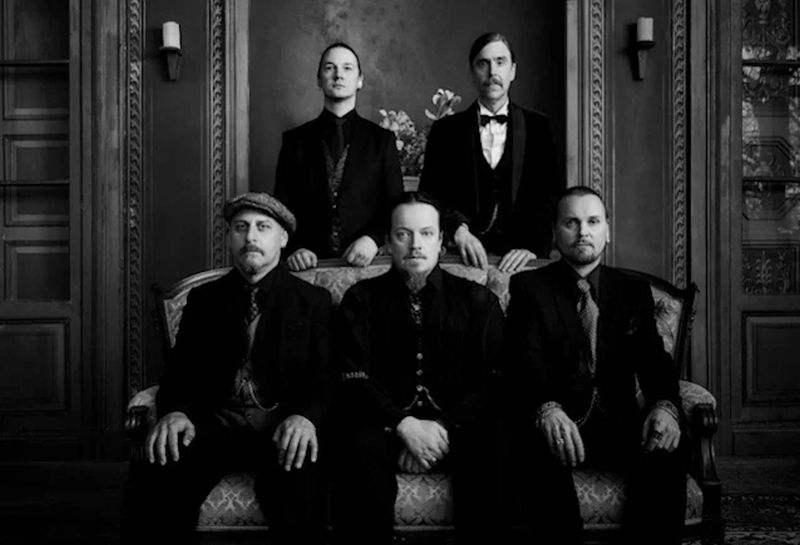
Coming back on the recording process of the new album: did it need a different approach to make this, in comparison with former albums?
The actual recording… well, Mikael makes really well-done demos. He does everything into detail and they are really thought through and worked through. He is very picky, so his demos almost sound like the done album, but luckily enough the rest of us has input and then it becomes more raw and dynamic. More organic. What we do when it is time for the drums… Waltteri (Vayrynen – Vera), our new drummer, he is fantastic. We skip out the drums and he plays the entire song. He will hear the vocal line and all the arrangements that will make him understand, so that he won’t do a strange drumfill or something else that will clash with it and that really helps. And then after that we usually go in and do the heavy rhythm guitars on each side, right and left. After that it is time for bass and keyboards and then we do what we call the guitar melodies, like additional and calm guitars and then we do guitar solos. Then backing vocals and then lead vocals. Some of the stuff on the new album is done at home. I did a lot of solos in my studio, Mike did his vocals in his studio and Joakim did all the Hammond organ in his studio. He has a nice studio. We did keyboards in the Proxy Studio with a grand piano for the last track ‘A Story Never Told’ which is the old piano that Queen used in ‘Killer Queen’. That is exactly the same one. Legendary!
For your drummer Waltteri – the new one – it was the first Opeth record he recorded….
Yeah! It was crazy. The tuning of the drums was super important. The Quadron studio has three different drum rooms, big ones, depending on what you are looking after in the drum sound. We wanted a more dry sound. This sound is super earthy and they have it in the control room. I think they sound great on the album as well. The drums on this album are super complex. It is not easy to play this album. We had to rehearse a serious amount of time, about six months before the recording, Waltteri and me, before we rehearsed with the entire band. Maybe twenty rehearsals of only guitar and drums. It was a great practise and it is a wide spectrum which is needed to be the drummer in Opeth. He is an extreme metal drummer, but he also knows something about jazz and cover stuff. He has a nice feel and he is super picky and ambitious, so… and also, most importantly, he is a very nice guy and easy to deal with. He has an old man’s soul.
He is younger than you of course and from Finland…
Yes, he is a bit of vital injection for us really. It is good for the longevity of Opeth that he joined the band.
Talking about old blood… you have several guests on the album: Ian Anderson from Jethro Tull and the singer from Europe Joey Tempest. That is an exceptional choice. How did you end up with them?
Having Ian doing the narrations was planned from early on. He and Mikael were in contact through his manager – to make a long story short – and said that he would be interested and that was amazing we found out, because it gives the concept of the story so much more depth. Having Ian there, with his very characteristic and folkloric additions, because this is supposed to be in the early 1920’s in England. He has a great voice and for me of course, he is also most of all a great singer and the way he plays the flute is unbelievable. It is so musical, it was actually Ian himself who asked: ‘do you need some flute on the album?’ And this was the answer to that: ‘yes of course’. We researched if there were some sections on the album throughout suitable for having flute. It worked out very good to have it on ‘§IV’ and next we added some flute on ‘§VII’. I had to pinch my arm, because I played a guitar solo right after his flute solo, I didn’t think that would happen ever when I was a little kid (chuckles). He plays a big role as his character with his narrations in the storyline. So we are very grateful for that! Also Joey Tempest… he was at Mikael’s house and he spontaneously suggested doing it. When Mikael was singing that part in ‘§II’, he thought about Joey. Mikael said: ‘I don’t know if he is up to guest appearances, but I will ask him.’ He said: ‘yes let us go down to the studio and try it out’, the lyrics were done, so Joey did it via phone calls later on. He is based in London, but it was very nice to do. People think it is a weird combination, but if you listen to it, I think it is a perfect combination, because we have Ian Anderson, then in the chorus Joey and then afterwards Mikael comes in with his growl vocals. That is a very unique mix of people, that is why ‘§II’ is really, really good I think.
Three generations of hard rock and music in one song, amazing! I also like the harp…
The harp was programmed first, but we want to do everything old school and we contacted a real harpist. She is from Sweden and we found out about her via YouTube. She did an amazing job. It sounded really good before, with a kind of synthetic harp, but then again, the section is so beautiful that you have to have the real deal of course. So she worked from Northern Sweden and she did a great job. She recorded the harp on her own and sent us the stuff. Also the strings, we did not record them in Rockfield. They were recorded in London, sending back and forth files and changing stuff and tweaking stuff of course…
What are the plans for the near future?
We are currently preparing for the North American tour, that will kick off on the 11th of October. We are busy with gear stuff at the moment, lots of logistics. I am responsible for the guitars, so it has been a few weeks work with the local guys. Next week we are hoping to start rehearsing and then after the tour we will have a break and are looking forward to the European tour in February. It starts in Finland, in Helsinki and then Stockholm. We do Scandinavia and Northern Europe and then the UK…
That’s the one with Grand Magus I think…
Exactly. That is a great band. We are happy to have them on the tour, because they are friends of ours and they are different from us. They play Viking metal or straight forward metal which I grew up with and I love it. JB is a fantastic singer and guitar player. We are really good friends, so I like the fact that we have a band touring with us that is quite different from how we sound like. I would prefer that if I go to a show. It gives nice variation in the entire package.
